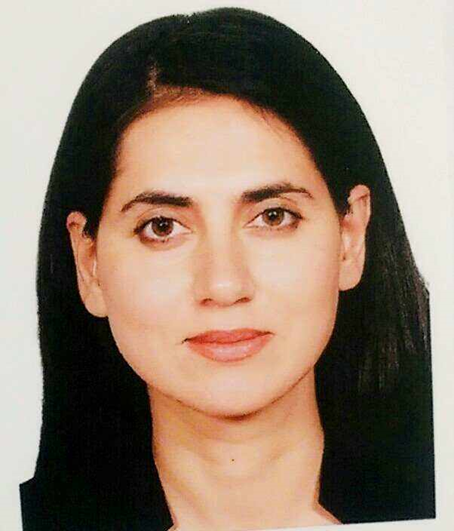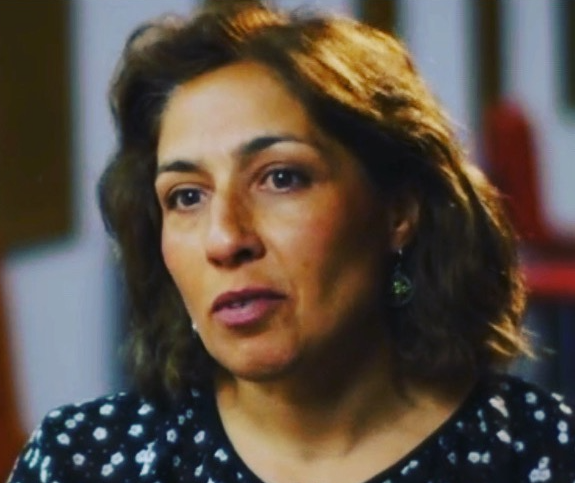Sundus Aslam


Sundus Aslam is an archaeologist with diverse experience working on Buddhist, Hindu, Sikh, and Islamic heritage, as well as Indus sites. Her primary and most recent area of research is Indus pottery. She submitted her PhD thesis on the ceramic assemblage from Chanhu-daro, Sindh, at the Taxila Institute of Asian Civilisations (TIAC), Quaid-i-Azam University, Islamabad. Her doctoral research was based on recent excavations carried out by the French Archaeological Mission in the Indus Basin, Pakistan.
The project
Title: Styles and Technologies: Exploring the diversity, complexity and stylistic variation of the Indus Ceramics in Sindh during the urban period (2600/2500-1900 BCE)
"This project is based on the ceramic assemblage from Chanhu-daro, corresponding to the first period of the Indus Civilization (2600/2500–2300 BCE), and collected during the 2015–2024 field seasons. The objectives of this study are manifold, including the creation of a new pottery catalogue encompassing the full variety of vessels, which will be published in a monograph to be submitted to the Directorate of Antiquities and Archaeology, Government of Sindh.
Moreover, comparative studies will be undertaken with pottery from other archaeological sites in Sindh, in order to establish a regional classification of Indus ceramics and to document the formation, variants, and evolution of Indus pottery styles.
In addition, technological and archaeometric analyses will be carried out on a selection of pottery samples exported to France for study (with the permission of the Culture Department, Government of Sindh), in collaboration with specialists from ArScAn and Sorbonne University. As there is currently no laboratory for archaeometric analysis in Pakistan equipped to handle such material studies, this research opportunity in France represents a valuable occasion to advance our understanding of the manufacturing processes of Indus pottery (including fabrics, decorations, and painted motifs).
Last but not least, the results of these studies will be used to develop a protocol (in English and Urdu) for the study of Indus archaeological ceramics, which can be adopted in the field by students and researchers working in Pakistan. Many Pakistani archaeology students do not have access to field excavations due to the limited number of projects—particularly in Prehistory/Protohistory and international collaborations. Their training in pottery analysis needs to be supported by appropriate tools for recording and documenting ceramic vessels during excavations and archaeological surveys, a process that will be facilitated by these new protocols."
Selected bibliography
- Aslam, S. , A. Didier and M. Ashraf Khan (2020). ‘Avifauna on the Ceramics of Kech-Makran, Balochistan, Pakistan’, Pakistan Heritage, Volume 2020: 145-171.
- Didier, A. with the collaboration of D. Sarmiento-Castillo, S. Aslam, H. Borne, K . Debue, A., Houdas, J. Humbert, F. Marchand, M. Mashkour, P. Mongne, F.-X. Romanacce, S.S.A. Shah and M. Tengberg (2021). The Early Centuries of the Indus Civilization at Chanhu-daro. Excavations 2018-2020, Karachi, Culture, Tourism and Antiquities Department, Government of Sindh.
- Didier, A., Quivron, G., with the collaboration of S. Aslam (accepted). ‘Painted pottery from the first centuries of the Indus Valley Civilization: Contribution of recent excavations at Chanhu-daro (Sindh, Pakistan)’. In : K. Bartl, T. Urban & S. Weber (eds.), Living the Past: Archaeological Research and Cultural Heritage Strategies in the Middle East and Beyond. Studies in Honour of Ute Franke.
- Khan, M.A. and Aslam, S. (2017). ‘Discovery of Rock Art in Azad Jammu and Kashmir’, Acta Via Serica 2 (2): 69-88.
- Khan, M.A. and ur-Rahman, G. (eds.), including the contribution of S. Aslam (2016), Threat to the Cultural Heritage of Pakistan: Survey and Documentation of Tangible and Intangible Heritage of Azad Jammu & Kashmir and Northern Area of Pakistan, funded by Higher Education Commission, Pakistan. Islamabad, Taxila Institute of Asian Civilizations, Quaid-e Azam University.



Nancy Jones

Arezou Azad

Carla Rita Palmerino


